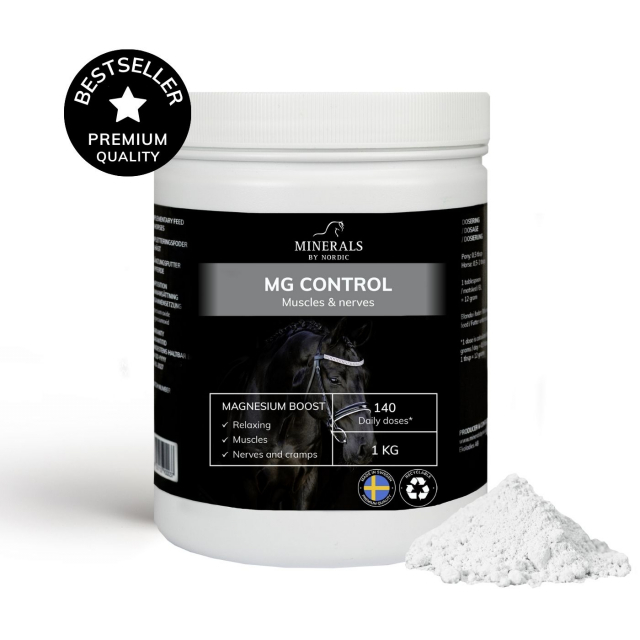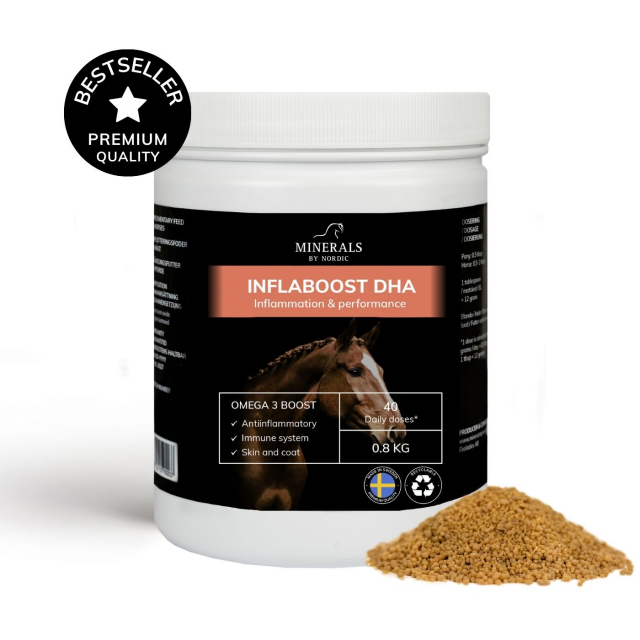Hormones | Nerves
3 Feed Supplements for Horses with Hormonal Issues, Hot Temperaments, and Tension
Mg Control
Magnesium supplements can help reduce nervousness and stress in horses. They have a calming effect and can be particularly useful for horses showing signs of nervousness or tension.
Inflaboost DHA
The omega-3 fatty acids found in Inflaboost DHA have anti-inflammatory properties. They can help manage inflammation and support overall health, which can be beneficial for horses with hormonal imbalances.
Herbs for Hormonal Balance
Certain herbs, like chasteberry (Vitex agnus-castus), have been shown to help regulate hormones in horses, especially those with conditions such as Equine Cushing's Disease or ovarian-related temperamental issues. Suitable for both mares and geldings that exhibit stallion-like behaviors.
Common Hormonal Issues in Horses
Reproductive hormonal problems can affect both mares and stallions. Mares may suffer from irregular or painful estrous cycles, ovarian cysts, or hormonal imbalances that affect fertility. Stallions may experience issues with testosterone levels that affect their behavior and reproductive capabilities. Treatments can include hormone therapy, adjustments in diet and environment, and sometimes surgical interventions. Stress and environmental factors can also affect a horse’s hormonal balance. Chronic stress can lead to elevated cortisol levels, which impact the immune system and can lead to other health issues. Creating a calm and stable environment, with ample time for rest and recovery, is crucial for maintaining healthy hormonal balance in horses.
One of the most common hormonal issues in horses is Cushing's syndrome, also known as Pituitary Pars Intermedia Dysfunction (PPID). This condition is caused by an overproduction of ACTH hormone from the pituitary gland, which leads to elevated levels of cortisol in the blood. Symptoms of PPID include a long and curly coat, abnormal sweating, weight loss, muscle wasting, and increased susceptibility to laminitis. Diagnosis is often made through blood tests, and treatment typically involves medication to control hormone production, along with adjustments in feed and management.
Providing the Right Support with Horse Feed for Hormonal Problems
If your horse shows signs of hormonal imbalances, such as sudden weight changes, changes in coat, reproductive issues, or abnormal sweating, it is important to contact a veterinarian. A thorough diagnosis and a customized treatment plan are crucial for managing hormonal problems and improving your horse's quality of life. With regular monitoring and proper management, many hormonal disorders can be effectively controlled, helping your horse to lead a healthy and active life.

 SWE
SWE


 ENG
ENG NO
NO AX
AX DE
DE